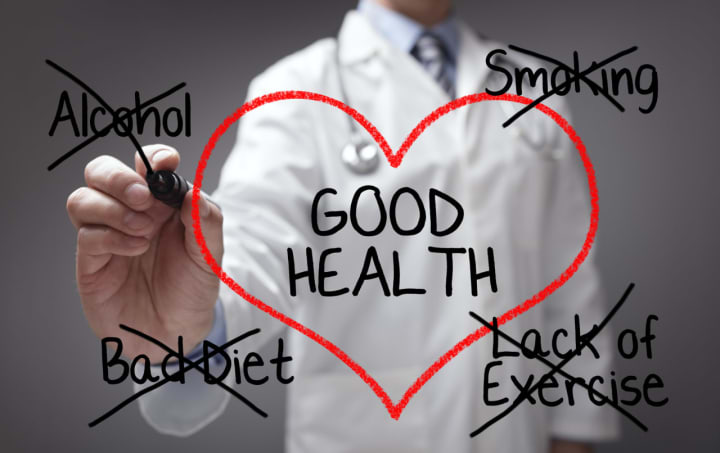With a little knowledge and determination, adopting the following practices can help reduce the risk of cancer, as well as diabetes and heart disease, and contribute to overall well-being.
Maintain a healthy weight
Obesity and being overweight is linked to 13 types of cancer, ranging from esophageal and stomach, to ovarian, kidney and others. Excess weight produces increased levels of insulin and estrogen, hormones that can stimulate cancer growth and contribute to chronic low-level inflammation which damages DNA. Areas where excess weight is stored can also pose an increased risk for cancer development. For example, weight around the waistline is strongly linked to colorectal and other cancers.
One way to determine if your weight is a cancer risk is by calculating Body Mass Index (BMI). For most adults, a BMI within the range of 18.5 to 24.9 is healthy, while a BMI between 25 and 29.9 to is considered overweight, and a BMI of 30 and over is obese.
Exercise on a regular basis
Regular exercise decreases the risk of all types of cancers, in addition to burning excess body fat and helping regulate hormone levels. Exercise also helps speed food through the colon, thereby reducing the body’s exposure to dietary carcinogens.
Experts recommend adults get at least 150 minutes of moderate intensity or 75 minutes of vigorous intensity activity each week. Children and teens should get at least one hour of moderate or vigorous intensity activity every day, with vigorous activity at least three days a week.
Eat a healthy diet
Aim to fill at least two thirds of your plate with plant-based foods, such as vegetables, fruits, whole grains and beans. These fiber and nutrient-rich foods will make you feel fuller, help you maintain a healthy weight and contain phytochemicals that protect your body against cancer.
Also consider limiting red meat to 18 ounces of lean cuts per week and eliminating processed meats altogether. Reduce your intake of sugar-laden foods such as cakes, cookies, candies, sweetened cereals and sugar-sweetened drinks.
Limit alcohol and avoid tobacco
Alcohol causes cancers of the mouth, throat, liver, breast and more. Experts recommend that men have no more than two alcoholic drinks per day and women no more than one.
Tobacco is a known carcinogen, and can cause cancers of the mouth and throat, to the lungs and beyond. It’s never too late to quit smoking; studies have shown those who quit tobacco usage, regardless of their age, generally live longer compared with those who continue to smoke.
NewYork-Presbyterian Cancer Centers treat an array of cancers and provide high-quality, comprehensive cancer care at locations throughout the New York metropolitan area, Westchester and the lower Hudson Valley. Board certified medical oncologists collaborate with a team of cancer specialists to provide each patient with an individualized plan of care. To find a cancer specialist at the location most convenient for you, please visit nyp.org/cancerlocations.
NewYork-Presbyterian is one of the largest and most comprehensive hospitals in the nation, ranked New York’s No. 1 hospital for the 16th consecutive year, and No. 6 in the United States, according to U.S. News and World Report. Affiliated with two academic medical colleges – Columbia University College of Physicians and Surgeons and Weill Cornell Medicine, NewYork-Presbyterian brings together internationally recognized researchers and clinicians to develop and implement the latest approaches for prevention, diagnosis and treatment. The Herbert Irving Comprehensive Cancer Center at NewYork-Presbyterian/Columbia University Medical Center is one of only three NCI-designated comprehensive cancer centers in New York State. NewYork-Presbyterian provides comprehensive cancer care at all of our locations across the New York Metro area including Westchester County and the Hudson Valley. Learn more at nyp.org/cancer.
.



